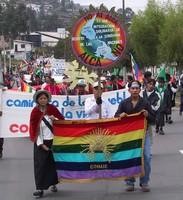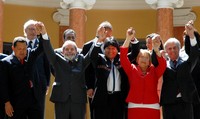
In recent years, Brazil has generated a level of international interest and excitement that was wholly unexpected and unpredictable as little as 10 years ago. As one of the so-called BRIC countries — the emerging powers of Brazil, Russia, India and China — Brazil has been drawing increasing attention on a variety of fronts. Brazil’s economy has been growing steadily and solidly since roughly 2002, with low inflation, expanding trade, and gradually declining public debt. As a consequence, the country has been an inviting location for both foreign direct and portfolio investment. Internationally, Brazil has been in the forefront in […]


